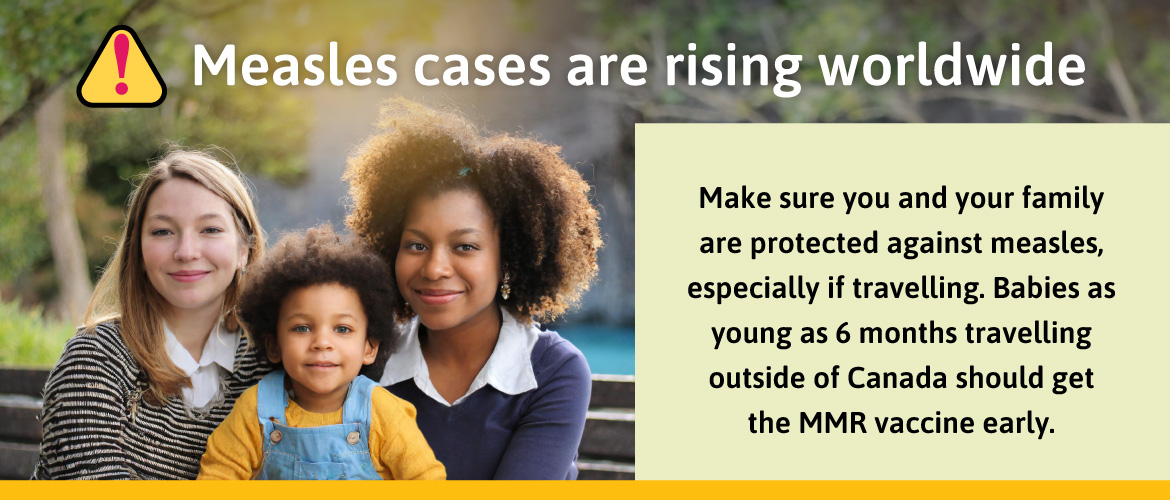On this page:

When travelling outside Canada, your family may be at risk of getting and spreading vaccine-preventable diseases that are rare or not found in Canada. It's important to get all the recommended and required vaccines for the countries you or your family plans to visit.
Planning ahead
Talk to your health care provider or visit a travel health clinic preferably 6 weeks before you travel. This is important because some vaccines may take several weeks to become fully effective, and others may require more than 1 dose.
If you leave on short notice, talking to your health care provider or visiting a travel health clinic is still important. Some vaccines that require more than 1 dose, like the hepatitis A vaccine, can still give you partial protection after just 1 dose. Some vaccines can also be given on an accelerated schedule (this means the doses are given over a shorter period).
One way to find a travel vaccine clinic is through the Public Health Agency of Canada’s list of designated Yellow Fever Vaccination Centres. Many pharmacies also provide travel vaccines.

Vaccines for travel
Routine vaccines
No matter where you travel, ensuring you and your family is up to date on all routine vaccines is important. Many diseases prevented by routine vaccines, such as measles and polio, are no longer common in Canada but are still common in other countries.
It may be recommended that your child receives routine vaccines early or on a different schedule when travelling. For example, infants 6 to 11 months of age who will be travelling to countries where there is measles disease should get the measles, mumps, rubella, (MMR) vaccine early. These children will need 2 more doses of the vaccine at the routine times (12 months and 4 to 6 years). Children between 1 and 4 who will be travelling can get their second dose early.
Recommended travel vaccines
Additional vaccines may be recommended for your family depending on the following:
- Your travel destination.
- The age of your family members.
- The risk of disease in the country or countries you are visiting.
- The length of your trip.
- The nature of the travel (for example, if you will stay in urban or remote areas).
- The activities you have planned while traveling.
Here are some examples of vaccines that may be recommended for travel to certain countries:
- Hepatitis A vaccine.
- Meningococcal vaccine.
- Japanese encephalitis vaccine.
- Typhoid vaccine.
- Cholera and travellers’ diarrhea vaccine.
- Yellow fever vaccine.
Required travel vaccines
Some countries require proof of receiving certain vaccines before entering the country. These requirements vary by country. For example:
- Saudi Arabia requires proof of meningococcal vaccination for all travellers arriving for Umrah or pilgrimage (Hajj) and seasonal workers.
- Yellow fever vaccination, documented on an International Certificate of Vaccination or Prophylaxis, is required to enter certain countries.
Where to get travel vaccines
Travel vaccines are available from:
- Travel health clinics. One way to find a travel health clinic is through the Public Health Agency of Canada’s list of designated Yellow Fever Vaccination Centres.
- Pharmacies.


